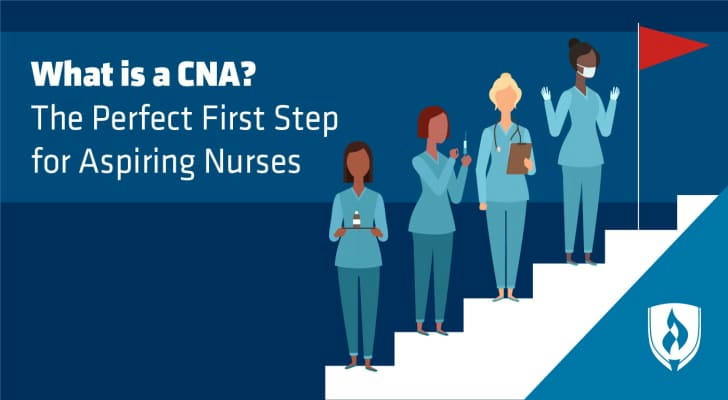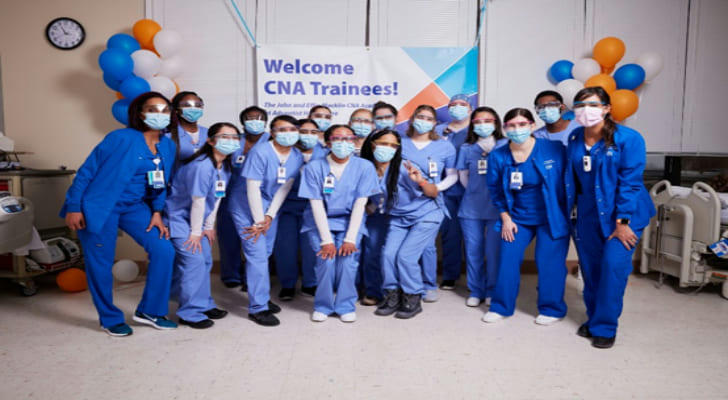Mastering the Future: Free CNA Courses – The Golden Ticket to the Healthcare Industry
In the healthcare industry, certified nursing assistants (CNAs) play a vital role. With the growing demand for professional caregivers, CNAs have become the first choice for many people's career development. To help those who aspire to enter this field, many institutions offer free CNA courses. This article will provide detailed information about free CNA courses, including course content, course access, and potential benefits after completing the course.
Ⅰ. Why choose a CNA course?

Choosing a CNA course is an important stepping stone to enter the healthcare industry. As an entry-level position in the healthcare field, CNAs provide a good starting point for those who want to build a career in healthcare. In addition, as the aging population in the United States intensifies, the demand for CNAs is steadily increasing, and it is expected that by 2030, people over the age of 65 will account for about 20% of the total population. CNA courses not only provide employment opportunities but also provide students with valuable healthcare experience.
Ⅱ. CNA course content
The CNA course includes 60 hours of theoretical instruction and 100 hours of clinical internship under the supervision of a mentor. Course content covers:
- Basic nursing skills
- Medical terminology
- Infection control
- Residential care
After the course, graduates will be eligible to take the national certification exam in California.
III. CNA course certification
CNA course certification varies from state to state. In California, courses are approved by the California Department of Public Health (CDPH) and graduates meet the requirements to take the California national certification exam. In other states, different certification standards may need to be met. Generally, CNA certification is state-level, so the acceptance of course certification and certificates may vary from state to state.
IV. How to get free resources for CNA courses?

State Programs: Some states offer funded CNA training programs, such as the CalGrows program, which provides free training, mentoring, and stipends for non-IHSS caregivers in homes and communities.
Online Resources: Websites such as CNA Online Classes offer basic free online CNA training courses to help understand the duties and skills of a CNA.
Community Colleges: Some community colleges and vocational schools may offer free or low-cost CNA training courses.
V. Advantages of choosing a CNA course
Quick entry into the industry: CNA courses are usually 6-12 weeks long and are an effective way to quickly enter the healthcare industry.
Broad employment prospects: With the increase in the elderly population, the demand for CNAs is also increasing, providing good employment prospects.
Salary potential: Although CNA is an entry-level position, the salary potential is still considerable depending on experience and region.
Career development: CNA experience can serve as a stepping stone for further education and career development, such as becoming a registered nurse (RN).

VI. Case Analysis
Success Stories: Many graduates of the free CNA courses have successfully entered the healthcare industry and made significant progress in their careers. For example, a trainee who passed the free CNA course training not only found a job at a well-known hospital but also continued his studies after working for a few years and became a registered nurse.
Community Impact: Free CNA courses also have a positive impact on the community. CNAs trained through these courses not only improve their professional skills but also provide better medical care services to the community.
Ⅶ. Opportunities and challenges facing CNA courses
Opportunities:
High demand: As the population ages, the demand for CNAs is expected to continue to grow.
Career springboard: CNA experience helps with future career development in the medical field, such as becoming a registered nurse.
Challenges:
Competition: As more people become aware of CNA as a way to enter the medical industry, competition is also increasing.
Work pressure: CNA work can be stressful and require dealing with the physical and emotional burden of patient care.
Ⅷ.Conclusion
CNA courses offer a quick and cost-effective path for those looking to work in the healthcare industry. While there are some challenges, high demand and potential for career advancement make CNA an appealing option. For those seeking free or low-cost training, there are resources available to help them get started in a CNA career.
Recommendations:
Active learning: Make full use of course resources and actively participate in learning and internships to maximize learning effects.
Continuous development: Take CNA as the starting point for career development and continue to explore further education and career opportunities.
